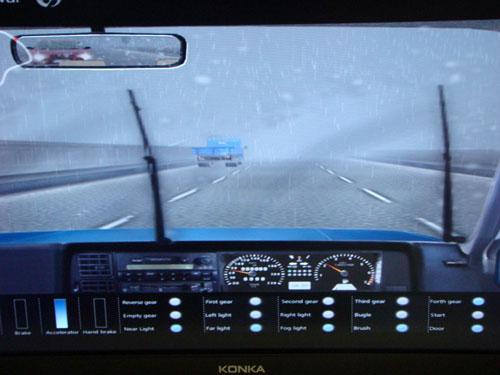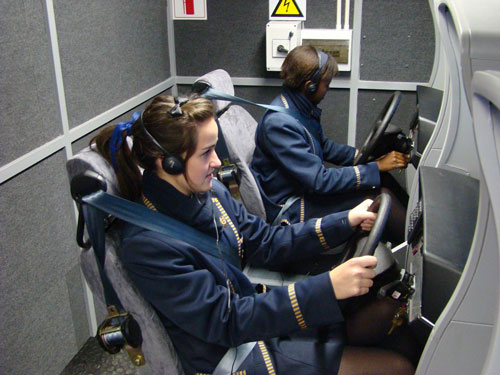
Bloemfontein-based company Afsim wants to improve the quality of training for new drivers before they’re unleashed on the roads. It’s selling driving simulators that allow trainees to experience driving at night, on freeways and in inclement weather, something real-world driving schools don’t offer.
Simulators have long been used to train pilots, and driving simulators offer the same benefits. For a start, simulators are cheap, particularly when one considers how many people can be trained on a single unit during its lifespan.
The simulators, which are imported from the Far East, are K53 compliant and right-hand drive. “The biggest challenge was finding a company that offered simulators with the right balance between price and quality,” says Afsim marketing manager Marelize Labuschagne.
Afsim was founded in January 2010, but spent its first year refining its business model and looking for the right supplier. Though the company only began importing simulators this year, it has already sold more than 60 to a mix of individuals and corporate clients.
For those looking for mobility, Afsim also offers an air conditioned trailer housing four simulators and a generator to power them. Labuschagne says the benefits of the trailers are their portability and the fact that they create a “classroom environment for learners”.
Afsim hopes to encourage schools to invest in simulators so that they can offer learners driving lessons before they leave school. It also hopes to interest government. “Our holiday road death toll statistics show that there is definitely a need for better, safer driver training,” says Labuschagne.

- Trainees try out the driving simulator
The simulators not only offer trainees the ability to drive on a wide variety of roads, and in a variety of conditions, but voice prompts warn the learner of errors, like crossing a solid line or forgetting to change gears or riding the clutch. Each simulator is fitted with an actual car clutch-plate to enhance realism.
Afsim’s simulators also include all of the yard tests required by K53, and the fact that trainees can repeat problematic parts of the yard test until they have mastered them is certainly a boon.
“The one thing the simulator can’t do is to ensure that the learner is performing all of the necessary observations,” says Labuschagne. As a result, Afsim provides both a 12-lesson book for learners and training for facilitators who can oversee the lessons and instruct on how to operate the simulators themselves.
Afsim is looking to expand its operation in sub-Saharan Africa and hopes governments will take an interest in its products.
“Drivers quickly learn that they can’t look at the gear lever every time they change gears, and that’s one of the things the simulator helps to train: muscle memory,” says Labuschagne. “It’s still crucial for learners to have real-world experience, of course, but our product helps to make sure that they’re more confident and capable when they first sit behind the wheel of a real car.” — Craig Wilson, TechCentral
- Subscribe to our free daily newsletter
- Follow us on Twitter or on Facebook

